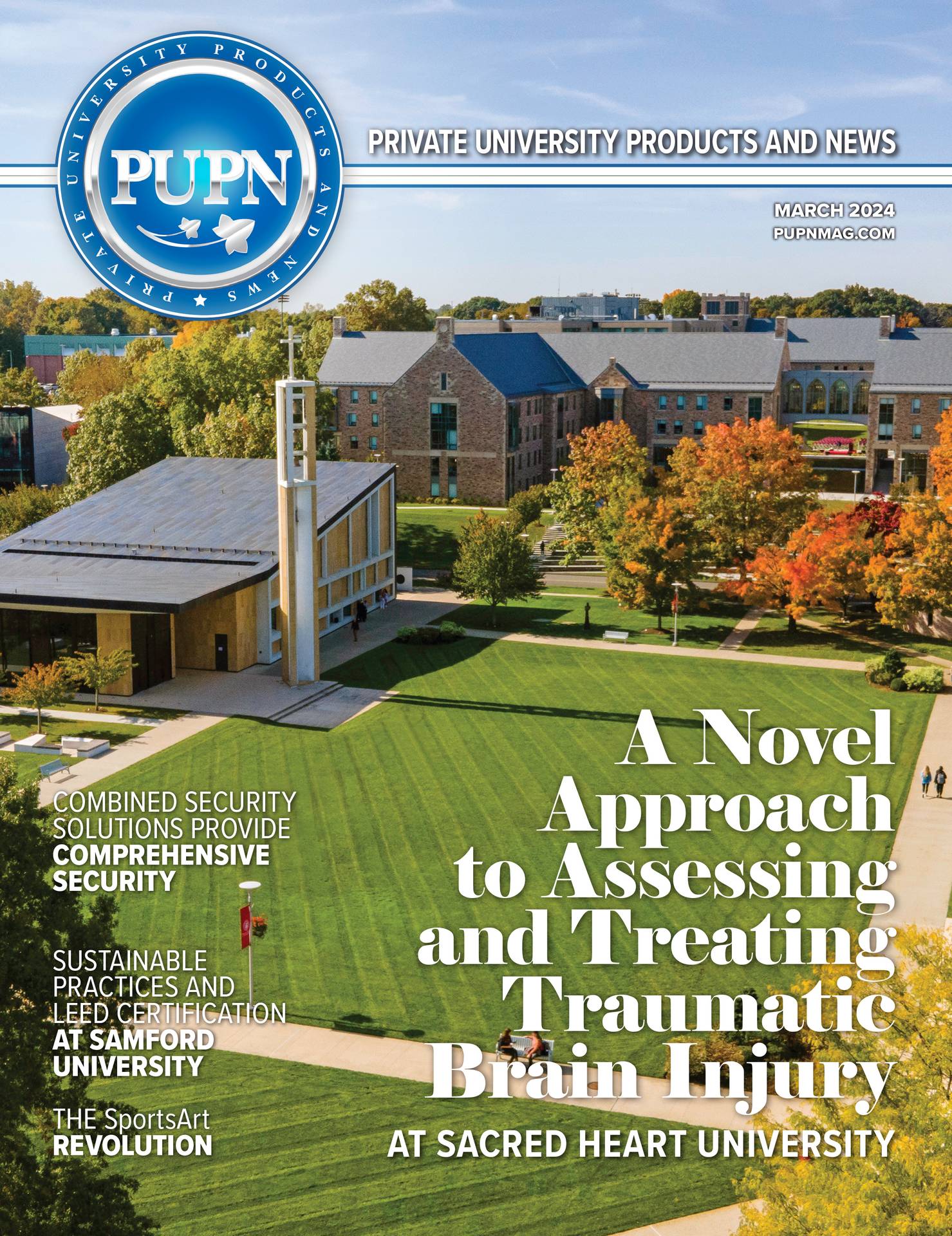Going to “the caf” with friends has long been an important part of the college experience. Indeed, one characteristic of a healthy diet is eating with people, particularly friends and family. Family dinners or gathering for a cookout on Sunday with family and friends are universal ways to be in community with others. Private college and university administrators understand this important aspect of human culture and typically require meal plans so that students have meals in a communal space. However, changes brought about by the COVID-19 pandemic have greatly diminished the opportunity for such experiences.
The pandemic has also brought about the need to reconsider the overall campus dining experience. When the pandemic hit, the first adaptation was providing self-serve, pre-packaged meals, the closing of drink dispensers and water fountains, and delivering boxed meals to quarantined students. Since then, campus dining has made numerous adjustments to abide by safety protocols while also attempting to keep some sense of community. As campuses welcome students back in the fall of 2021, innovations in food delivery and food options are providing a different type of campus dining experience.
Food Delivery
Mobile apps that allow the user to order food and have it delivered are now commonplace. Companies such as Uber developed UberEats, and other companies such as DoorDash and Waitr were developed specifically to offer food delivery services. Fast food and other restaurants also have apps for mobile ordering and delivery. Today’s students most likely have several food delivery or restaurant apps on their phones.
Campuses are utilizing the customization capacity of apps to offer a new dining experience for their students and are contracting with outside companies to deliver even better customer service. For example, Fresh Ideas Food Service Management provides innovative ways to order and deliver food. Fresh Ideas understands “the important role food plays in recruitment and retention” for higher education. Their dining services program is “positioned to support these initiatives through meaningful interaction and engagement between students and Fresh Ideas.” The company is committed to offering high quality fresh foods, using sustainable practices, and developing innovative technologies related to food production and delivery.
Westminster College in Fulton, MO partners with Fresh Ideas and offers a completely contactless option for meals at the Johnson College Inn (JCI) Snack Bar. Students can order food through the FreshX app. When their food is ready, a unique code is sent to their phone. This code gives access to a specific cubby in a Minnow Pod, a refrigerator-like set of ten insulated cubbies inside the JCI. This pod is portable and can be placed anywhere there is a power outlet. Interior lighting, customizable pick up times and ADA compliance give students security and flexibility. This system also reduces wait times for the students, helps with distancing protocols, and has resulted in increased sales for the campus dining system.
Robots are also being used by campuses for food delivery. Sodexo, a food service and facility management company, is partnering with robotic delivery startup Kiwibot to deliver food on campus. Loyola Marymount University and Gonzaga University are participating in early trials with the rovers. Students and faculty have the option of ordering fresh meals delivered by the insulated, Level-3 autonomous devices. The robots travel at a maximum two miles per hour, are equipped with high-tech sensors and are supported remotely to ensure safe operations.
As food delivery becomes less of a luxury and more of a solution, such innovations bring increased flexibility to campus dining.
Food Options
Private college and university dining halls are also offering increased food options for students. More and more research supports the benefits of healthy, sustainable eating as well as the negative impact of mass food processing and food waste. Campuses are addressing these issues and expanding their menus to include plant based and vegan foods, allergy-free foods and dedicated preparation spaces.
At Dillard University in New Orleans, Chef Dennis Dunn has slowly and consistently increased the health and wellness of students through food. Since he began working at Dillard, Chef Dunn has paid close attention to what the students wanted, such as food “from back home” and more variety. He began replacing frozen vegetables with fresh. He introduced vegetable étouffée and vegetable jambalaya, plant-based versions of two New Orleans classic dishes. Vegetable stock is made with kitchen scraps, such as apple cores and potato peels, which reduces food waste. A designated station in the dining hall gives students and faculty a variety of fresh meatless entrees, sauces, and savory blends. For Chef Dunn, good food means good for the body, and his approach has positively impacted the campus community.
In February 2020, Vanderbilt University in Nashville, Tennessee, announced it had become “the first U.S. university where all commercial on-campus kitchens are ‘Certified Free From’ tree nuts and peanuts,” the top two food allergens in the United States. Additionally, the university dedicated one dining hall certified free of other common food allergens. The Rand Dining Center is free from milk, eggs, fish, shellfish, wheat, and soybean, in addition to tree nuts and peanuts. Students can choose to dine in or use the mobile app orderIT, which has the additional benefit of recording and tracking foods consumed by students, particularly those with documented life-threatening allergies or medical dietary restrictions. These options are for everyone on campus, supporting the university goal to serve “a diverse student population with a broad spectrum of dietary needs and restrictions” and to offer “an inclusive dining experience for all students.”
Campus dining is constantly evolving and innovating to meet the needs of students. Cafeterias, food courts, and snack bars were already in place to offer a variety of food options as well as hours of operation. The pandemic accelerated the use of technology to provide contactless ordering and delivery of food. In addition, the move toward sustainability and the importance of student health has resulted in menu changes that include plant based and allergy-free options. These changes create a campus experience that supports the lifestyle, health, and wellness of the entire campus community.










